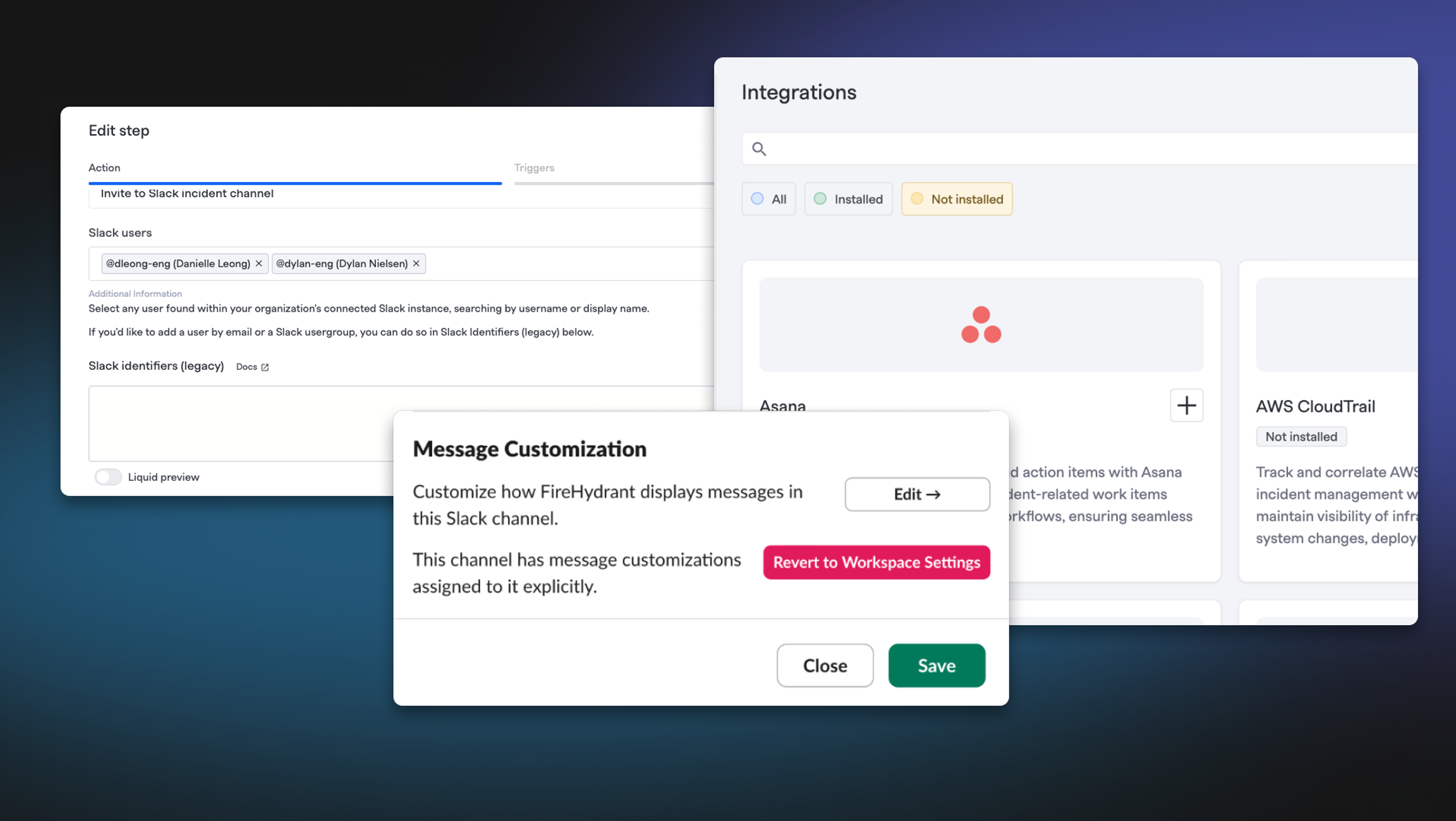
Hey there, firefighters 🧑🚒 This week, we’re dedicated to squashing bugs and improving the reliability of our product. Here's what we've shipped for you!
⚙️Slack Channel Specific Configuration#slack-channel-specific-configuration
You can now set channel specific notification preferences per channel! This will help you cut out the clutter and surface only what you need. In order to take advantage of this functionality just use the /fh channel command in any channel that the FireHydrant Bot is included in and you’ll be able to configure it to your specific needs.
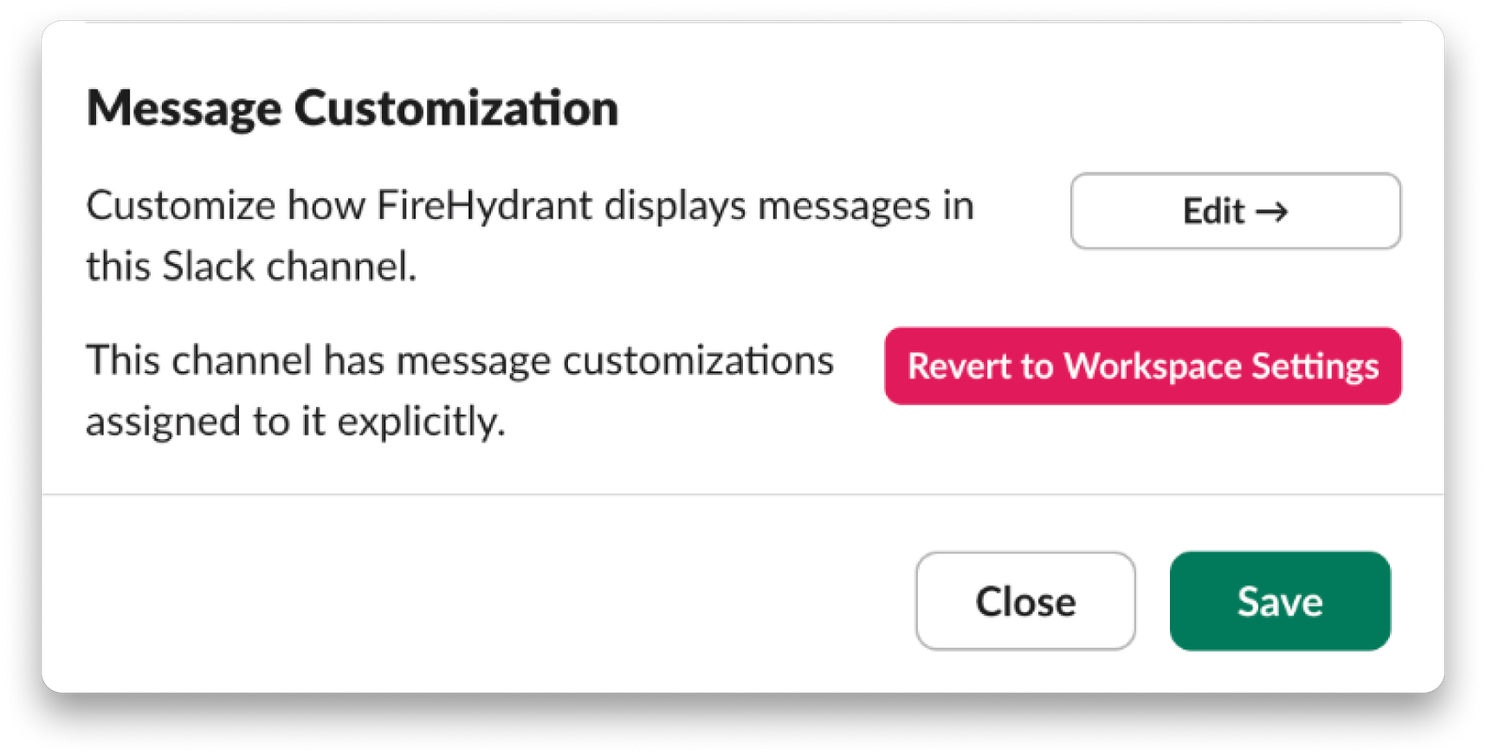
✉️ Multi Select for Invite Slack Users in Runbooks#multi-select-for-invite-slack-users-in-runbooks
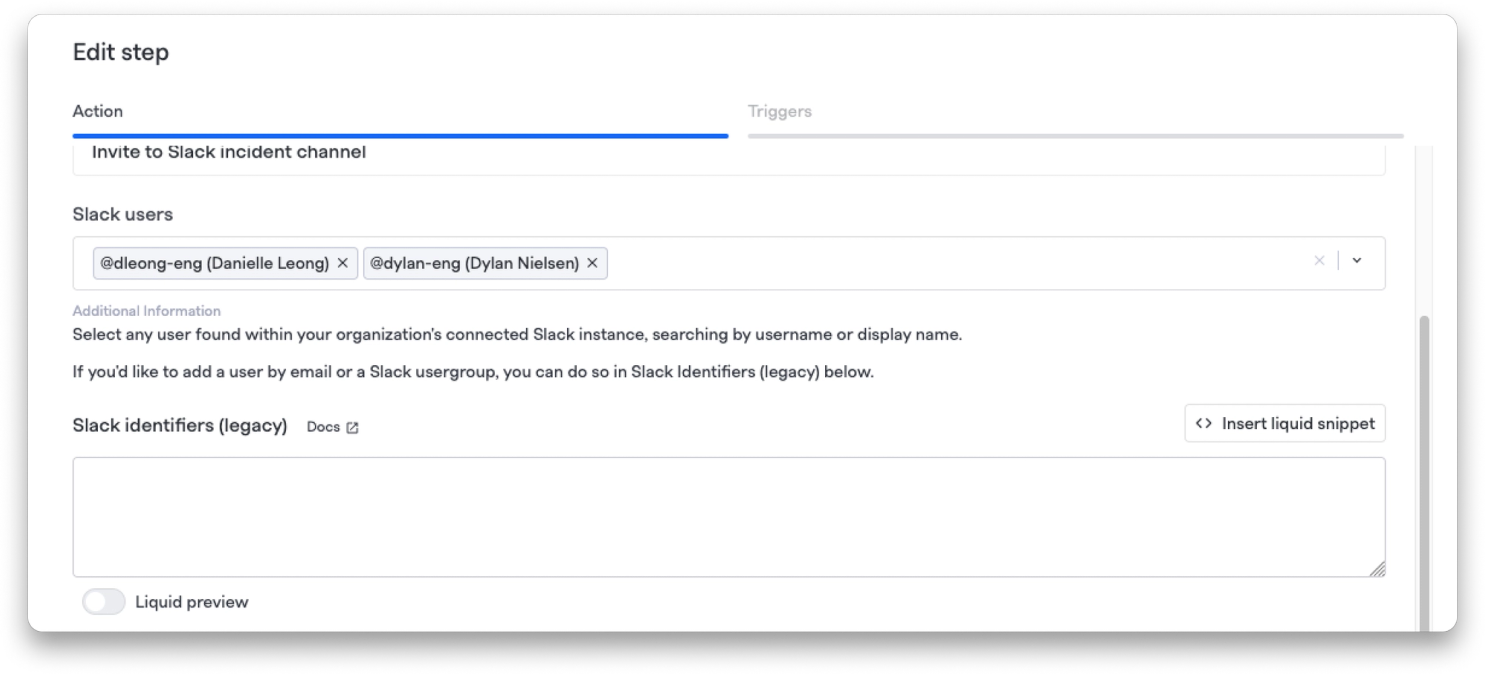
We now present an option to include Slack users within the Invite to Incident Channel runbook step, allowing you to add Slack users from your organization with ease. Ensure that you add exactly who you need, integrated directly with Slack.
🚨 Directed Command Center Alerts#directed-command-center-alerts
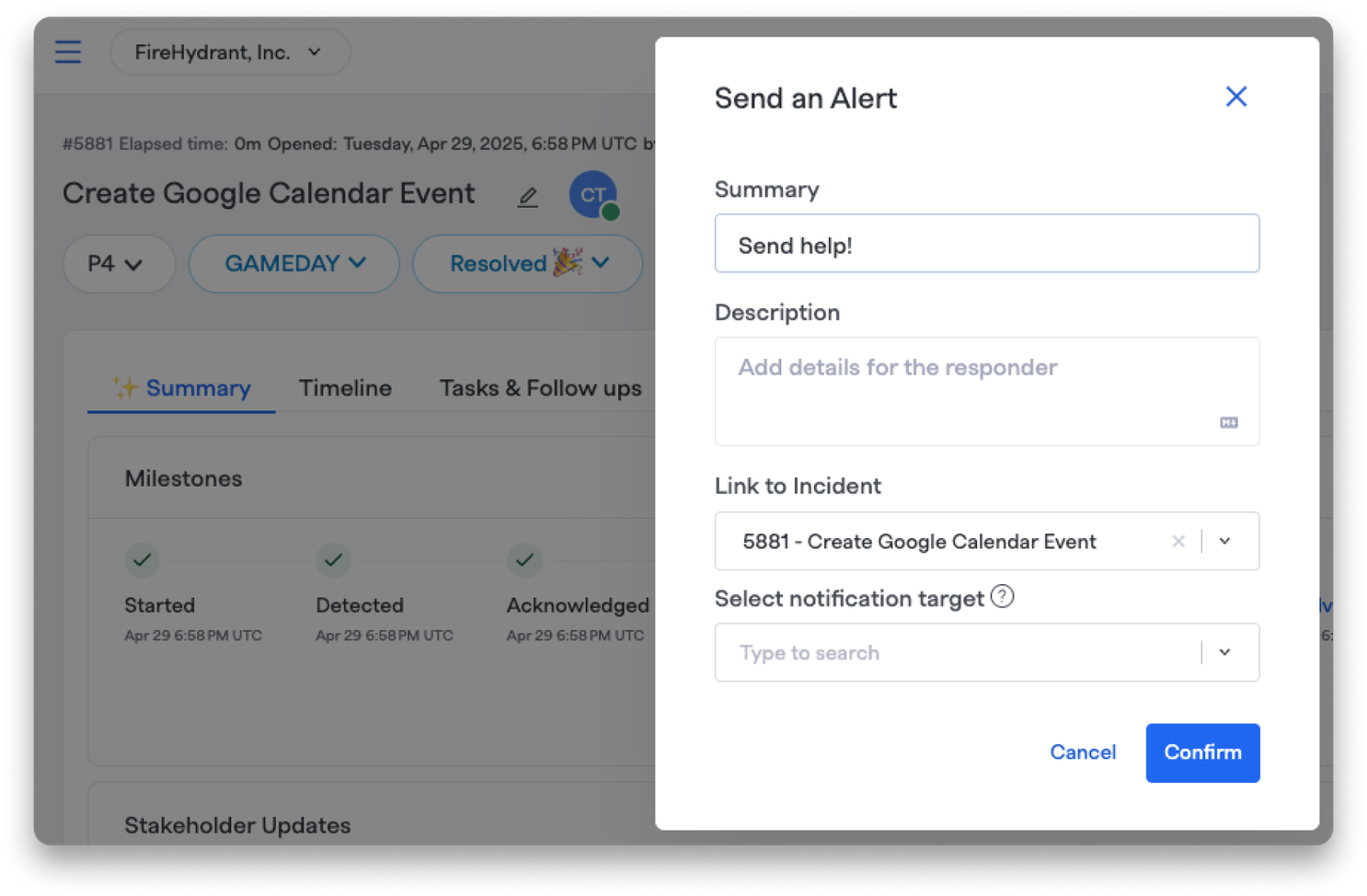
We’ve updated our “Send an Alert” modal in the Command center to now allow you to select a specific incident to attach the alert to. If you are in a live incident, the dialog will even automatically associate the alert with the incident. This matches the behavior that you already know from Slack. Now you can give your responders the context they need to jump in and help get to the resolution!
🔄 Integrations Page Redesign#integrations-page-redesign
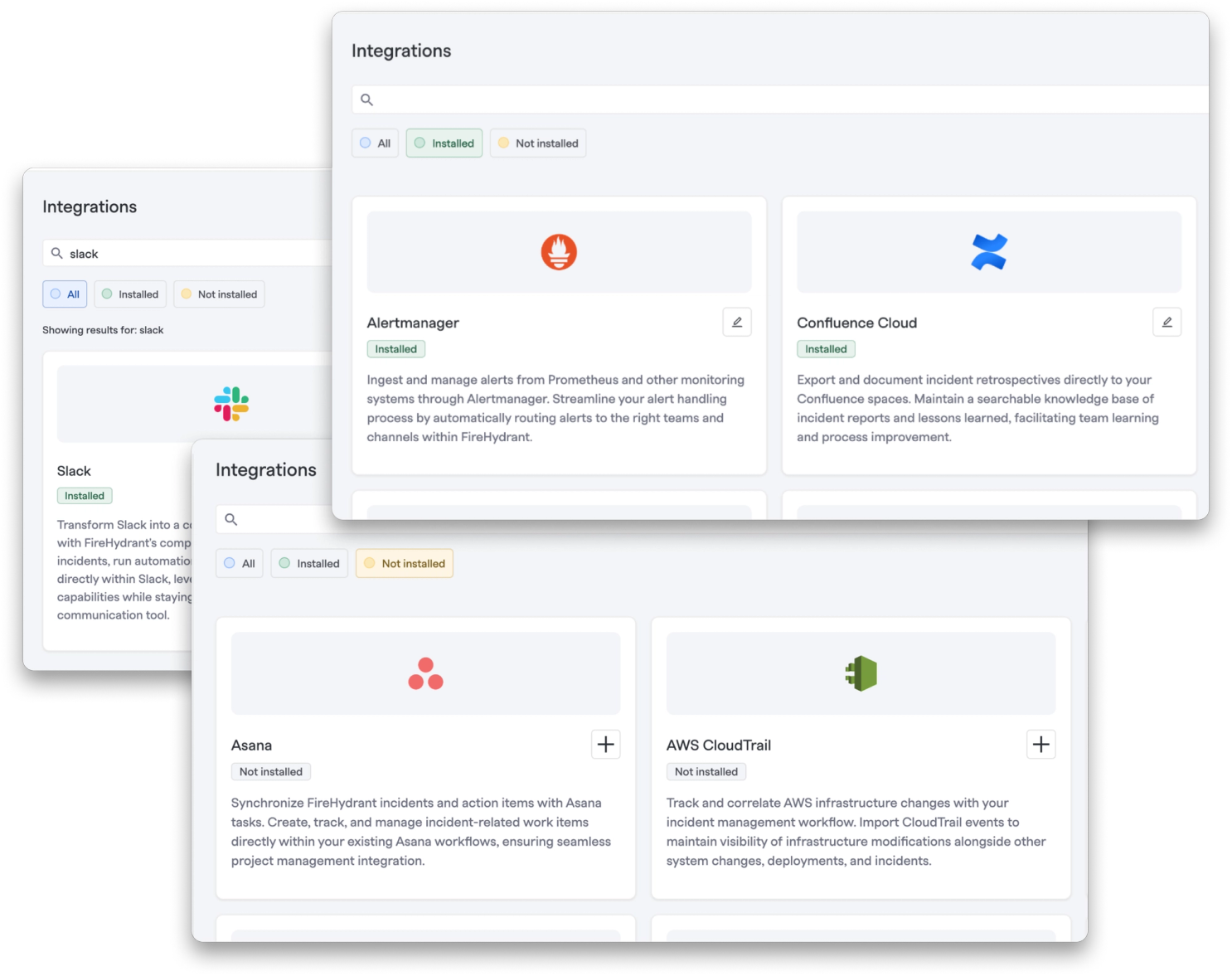
We've completely redesigned our integrations experience to make connecting your tools smoother than ever. Integration cards and pages have been rebuilt from the ground up for better clarity and ease of use. These updates make managing your integrations more intuitive, giving you more time to focus on what matters - putting out fires!
💅 Improvements#improvements
- Liquid Templating Enhancements: Added current_lifecycle_milestone to incident liquid templating
- Secondary Schedule Timing: Now when defining a secondary schedule you can configure whether the secondary schedule is before or after the primary shift.
- Precision Template Validation: Real-time feedback as you build liquid templates to ensure that you get accurate time based metrics
- Audience Details in Liquid Templates: You can now reference Audience generated summaries within your liquid templates.
- Retrospective Save Functionality: The Save button in the retrospective experience responds to the current state of the text, showing you when you need to save
- Status Page Display: Improved how information appears on status pages to clearly show if the page is hosted by us or Atlassian
- URL Support: Added support for creating followup tickets from URLs that contain JQL syntax
- Change Events Search: You can now search for change events within the attach change events modal from an incident.
- Slack Integration: Replaced formatted links with proper Slack mrkdwn
- Saved Searches in API: Now you can utilize your saved searches in the incident retrieval API.
🐛 Bug Fixes#bug-fixes
- MS Teams: MS Teams group chat invitations will now honor API limits
- Number Change on Scroll: Fixed numeric input fields changing on scroll
- Timeline Message Duplication: Eliminated message duplication in incident timelines
- Task and Follow-Up Slack Notification Preferences: Fixed preference keys for a more consistent experience within the Slack channel when creating Tasks and Follow ups
- Multi-org Testing: Fixed routing errors when testing runbooks in multi-org setups
- On-call Schedule "Add All": Now when you choose to add all users to a schedule on creation, you won't get an unassigned user.
- Runbook Handling: Discarded runbooks no longer execute or attach to incidents
- Multi-Jira Connection Health: Jira Cloud connection warnings now only show relevant alerts from your specific connections and handles decommissioned instances gracefully
- Better Jira Handling: Ticket summaries are now truncated so that we can sync incident tickets with long summaries to Jira
That's all for this week! As always, if you have any questions or feedback, our team is here to help.